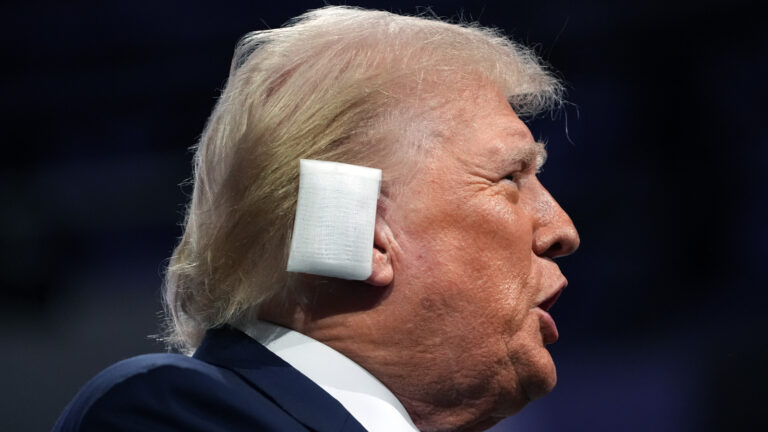In its wide-ranging antitrust complaint against Apple and its iPhone business, the U.S. Justice Department takes specific aim against Apple’s massive financial business, specifically how it uses Apple Pay to block competition and make billions of dollars a year in the process.
The DOJ alleges that Apple is not only stifling competition among payment services, but it is also potentially stifling innovation, since the fees that banks and others fork out to play with Apple Pay make them less inclined to develop other kinds of services that might rival Apple.
Apple Pay is no stranger to regulatory controversy. In 2020, the European Commission opened an antitrust investigation into it. And in January 2024, perhaps with a sober regard of the other looming regulatory battles it would be facing this year, Apple finally offered some concessions, where it would allow third parties access to its NFC and related technology to build their own tap-to-pay payment services to bypass Apple Wallet and Apple Pay. (Apple’s offer is still being evaluated.)
Interestingly, although Europe has been a hotbed for Apple antitrust action — just earlier this month the EU fined Apple almost $2 billion for breaching antitrust rules in music streaming — that Apple Pay case was the only mention of European activity in the nearly 90-page DOJ complaint.
PayPal — the payments behemoth that has substantial businesses in mobile transactions and point-of-sale technology — was apparently instrumental in the original EU complaint around Apple’s payment monopoly. Contacted today about the DOJ complaint in the U.S., a spokesperson for PayPal said the company declined to comment. (It’s certainly keeping a close eye on the proceedings.)
The DOJ’s argument
Apple today takes a 0.15% fee on any transaction made via Apple Pay. In 2021, that worked out to $1 billion; by 2022, that grew to $1.9 billion; and in 2023, it’s estimated that the figure more than doubled to $4 billion.
These are, relatively speaking, small sums for the company considering that it booked more than $383 billion in 2023 in revenues overall.
But Apple’s longer-term bet is that payments are central to how people exist in today’s world — “Apple recognizes that paying for products and services with a digital wallet will eventually become ‘something people do every day of their lives,’” as the DOJ notes — and thus central to the iPhone ecosystem, iPhone ownership and ubiquity, and the DOJ’s complaint.
Today, the DOJ says, Apple maintains “complete control” over how users make tap-to-pay payments using the NFC functionality of their iPhones in the U.S.
Its contention is that this has not only prohibited other companies from building tap-to-pay functions in third-party mobile wallets, but also has hindered what is done with the technology. “Absent Apple’s conduct, cross-platform digital wallets could also be used to manage and pay for subscriptions and in-app purchases,” the DOJ alleges.
The DOJ is also concerned that Apple Wallet holds all the cards, literally and figuratively, and can effectively become a super app that provides much more than just financial functionality (something else that Apple has prohibited from developing on iOS, the DOJ points out elsewhere in its complaint).
“Apple envisions that Apple Wallet will ultimately supplant multiple functions of physical wallets to become a single app for shopping, digital keys, transit, identification, travel, entertainment, and more.”
At the heart of Apple’s interest in payment functionality is its ability to “own” all the customer data that comes with it. That is something that the DOJ has identified and tied in with how Apple’s playbook is ultimately about selling its smartphones.
“If third-party developers could create cross-platform wallets, users transitioning away from the iPhone could continue to use the same wallet, with the same cards, IDs, payment histories, peer-to-peer payment contacts and other information, making it easier to switch smartphones.
“And because many users already use apps created by their preferred financial institutions, if these financial institutions offered digital wallets, then users would have access to new apps and technologies without needing to share their private financial data with additional third parties, including Apple,” it writes. “In the short term, these improved features would make the iPhone more attractive to users and profitable for Apple. Accordingly, the absence of cross-platform digital wallets with tap-to-pay capability on the iPhone makes it harder for iPhone users to purchase a different smartphone.”
For now, it’s a one-sided development direction: Apple does encourage banks, payment companies like PayPal, merchants and others that build payment-related businesses to incorporate Apple Pay functionality into their own workflow, but for these it’s about encouraging transactions on Apple Pay by enabling credit cards to be added to the Wallet, or about incorporating payment facilities into payment apps to take payments — more transaction revenue for Apple! — but not to build their own payment features.
“Apple simultaneously exerts its smartphone monopoly to block these same partners from developing better payment products and services for iPhone users,” it notes. In the meantime, Apple has continued to develop Apple Pay, launching — for example — its own buy now, pay later offering last autumn (pictured above).
The DOJ may have its own major beef with Google, but ironically it comes out a bit of a hero in this complaint. Both Google, which controls the rival Android smartphone platform, and Samsung are called out as two examples of payment app developers that are not taking fees on transactions made using their payment apps.
“Apple’s fees are a significant expense for issuing banks and cut into funding for features and benefits that banks might otherwise offer smartphone users,” it notes.
Apple’s counterclaim is likely to be that Apple Pay has removed a significant piece of friction in the purchasing cycle, which actually creates more transactions overall, not fewer.
That might well be true but not as Apple would frame it. Apple Pay and Apple Wallet are both a small part of Apple’s services revenues — which were upwards of $90 billion in 2023 — or indeed overall revenues. But the DOJ cites estimates from the U.S. Consumer Financial Protection Bureau that say Apple Pay enabled nearly $200 billion in transactions in the United States in 2022, with that figure expected to grow to $458 billion by 2028.
That alone speaks to just how central it is and will impact the wider ecosystem, one more reason the DOJ feels it supports its case to call it out now.
For more on Apple’s antitrust lawsuit, check here:























